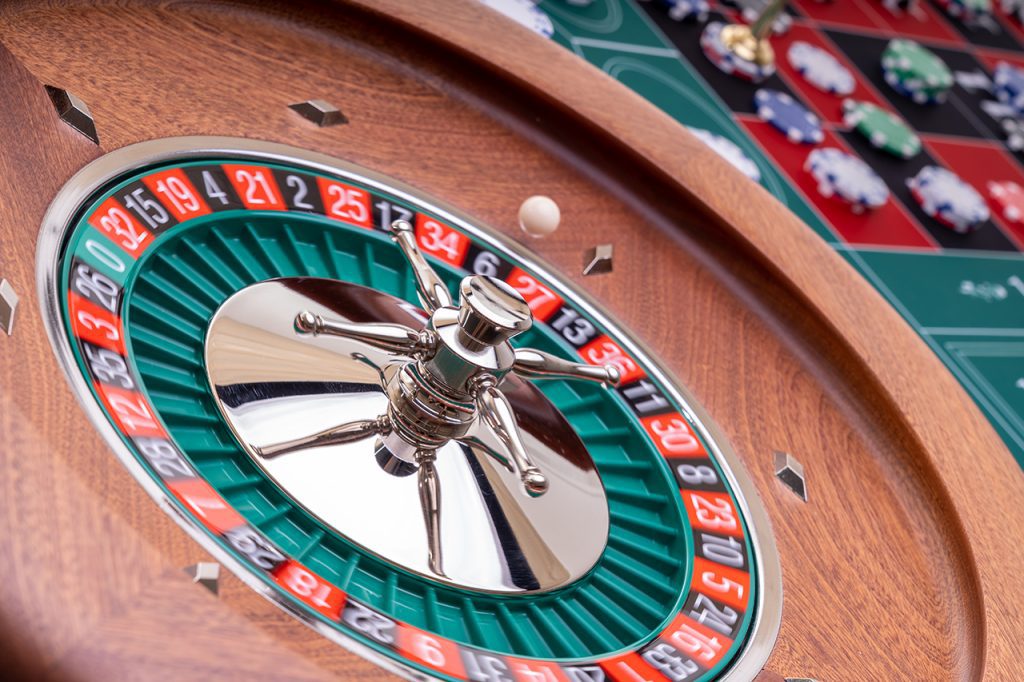Should you bet on a couple of numbers, or is it a good idea to go big and bet on many roulette numbers? This is an important consideration when playing the game. However, there’s no clear answer. No one can tell you with any amount of certainty that one method is better than the other.
Both approaches have their advantages and disadvantages. As a rule of thumb, you shouldn’t decide on betting few or many numbers in a situation without taking other aspects of that particular method into account. Since choosing a bet is a fundamental part of playing and doing well in roulette, this can only be assessed in conjunction with other features of the strategy that you intend to utilize.
Both online and land-based roulette at a casino are incredibly well balanced games. This makes it hard to exploit any possible “holes” or “weak links” in the structure of a game and reduce the house edge in the process. Moreover, trying to “gain an advantage” is an even bigger challenge.
More Numbers Doesn’t Necessarily Equate to Betting More Money
Many players seem to believe that betting on fewer numbers is a safe strategy. There are even some convincing reasons to do so. The biggest is that betting just a few numbers leaves you relatively less vulnerable to the house edge.
There are some merits to this assertion. For one thing, betting fewer numbers means that your total bet value is lower in comparison to when you bet on many numbers. Because the house edge is calculated according to your total bet value, betting less on every spin seems to be a good option.
However, theoretically, how many numbers you bet on doesn’t affect anything. Betting $1 each on 20 different numbers would not help you gain any advantage that a $100 wager on a single number cannot. Similarly, neither bet will put you in a disadvantageous position compared to the other.
In the above-mentioned example, the $100 wager on a single number does carry more risk than the multiple $1 bets. However, that’s solely due to the value of the bet ($100 against $20). Less or more numbers don’t put you at any advantage or disadvantage.
The dollar value of your wager and the numbers you bet on aren’t related in any way. A widely held misconception is that betting on more numbers requires that you bet extra money. That’s not the case at all. As illustrated by the example above, you can make a single-number bet that has a bigger value than the combined amount of multiple-number bets.
Betting On Many Numbers
If you’re betting on more than 18 digits, they can be thought of as “many numbers.” Here’s a scenario with 20 digits. A lot of people bet on 24 numbers, with the bets split between columns or two dozens. Such wagers usually have low variance, meaning that you won’t have to experience many losing streaks. But, that doesn’t equate to making a profit all the time.
Wagers like this tend to have lower payouts. Hence, it’s possible that you might have won more spins. However, the greater number of wins isn’t enough to cover your losses because of the smaller values and lower payouts of the bets that you’ve won.
Simply put, betting on many numbers can help ensure fewer losing streaks. The likelihood of your numbers hitting more often will be greater. Nevertheless, those wins would not give you a huge payout. As a result, you might still find yourself in the hole after winning more often than not.
Betting on Fewer Numbers
A good example of wagering with fewer numbers is the “5 neighbor numbers bet.” In general, any bet fewer than 18 numbers is considered “lesser numbers.” But, many players are normally content with betting on 5 or less numbers. This is because the fewer numbers there are in your “lesser numbers” wager, the more powerful the characteristics of that bet would be.
Here’s a look at those characteristics. By wagering few numbers, you need to be ready for a long streak with “no hits.” This is where your patience will be tested, because such runs are usually followed by brief stints of “multiple hits.”
Quite often, these hits come in the form of “normal intervals” that have been predetermined. Generally, there’s a long wave of “no hits” with intervals of “multiple hits” in between. Keep in mind that “multiple hits” doesn’t mean consecutive hits. They might materialize regularly and successively as well in some cases. But, the latter’s not a guarantee!
This aspect, together with the possibility of higher payouts, gives the “fewer numbers” bet a roller-coaster-like reputation and feel within the roulette world. There are sharp heights and big lows, in the same way as can be expected in a real roller-coaster ride.
In any case, be mentally prepared for your bankroll to fluctuate like a roller-coaster when playing roulette. Compared to the “many numbers” wager, there’s a lot of variance in this betting approach. That’s a more technical way of saying that you won’t get lucky very often. That being said, when lady luck does smile on you, the win would be big and worth celebrating.
Final Word: Which Bet Is Better?

As mentioned earlier in the piece, it depends on what sort of approach you’re going to utilize while playing. There’s isn’t a clear favorite between the two strategies. Players need to consider many inter-dependent factors before making a decision.
Many of these aspects can help create synergies. This is what your choice should come down to: where and how you can create synergies with your chosen bet. Furthermore, your playing style will have a say in the kind of bet you decide to make. The variance associated with both bets will also have a role to play.
In a nutshell, there are no straightforward answers when choosing a bet in roulette. As long as you know what you’re doing and make a careful analysis of all the above-mentioned dynamics, your decision should turn out in your favor.
For more interesting stuff about roulette, keep following Full Roulette.


Leave a Reply